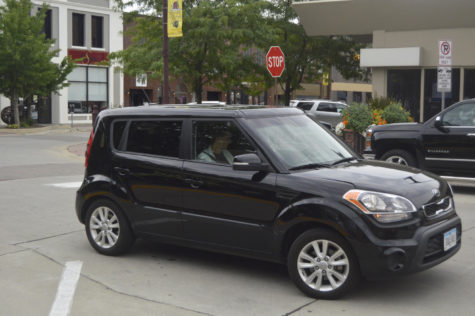Know your rights in police encounters
January 20, 2015
When asked a question, you don’t have to answer
“You have the right to remain silent.” Take that seriously. Whether you’re stopped on the road, being arrested or in jail itself, you can choose not to divulge any information. It’s generally recommended that you talk to your lawyer first before answering any questions — as seen in many cheesy movies and TV shows involving police officers.
There are a couple exceptions. First of all, it’s required in some states that you answer an officer when he asks you to identify yourself. Second, you need to fork over your license, proof of insurance and registration when you’re stopped by an officer while driving.
Keep in mind that lying to an officer is a crime, so keeping your silence is probably a good idea. Also, as the Miranda rights say, anything you say could be used against you in court. So, yeah, cork it before you get yourself in trouble.
So you’re walking and you’re stopped by an officer
Again, you don’t need to answer any questions. If questioned, you can say you don’t wish to talk to him/her, walk away calmly or ask if you’re free to go.
If the officer says you aren’t under arrest, but you can’t leave, then you’re being detained. You aren’t under arrest, but it could still happen. In this, an officer can pat you down if he/she holds “reasonable suspicion,” but anything more than that is a search and you have the right to refuse.
Remember that, in a search that doesn’t concern a warrant, you don’t have to consent to a search. More importantly, not consenting is not an admission of guilt, and officers can’t hold that against you.
When you’re stopped while driving
After showing your three documents — license, insurance and registration — an officer can ask you to step out of the car. Officers can also separate those in the car in order to question them separately — though answering the questions is not mandatory.
The police can’t search your car without your go-ahead, and they can’t use your refusal to consent to a search as a reason to do the search — again, not an admission of guilt. However, they can if they have probable cause to think criminal activity is ensuing, you’ve been involved in criminal activity or your car might have evidence of some sort in it.
They want to search your place
Officers can’t search a home without a warrant or consent, though keep in mind that officers can search your place if your roommate or guest allows them to — if the officer(s) think that person has the authority to make that call.
The same goes with your office. If your employer consents to your office being searched, then the officers can and will.
If an officer knocks on your door, you don’t need to open it and greet them with outstretched arms. You’re allowed to stand behind your door and ask if the officer(s) have a warrant. If they do, you can have them slip it under the door so you can check it out. You can also slip out of your door and close it promptly behind you so you can talk to the officer, though this looks totally suspicious, just saying.
If the warrant checks out, the officer can search your place. You can follow him/her and it’s recommended that you pay attention and/or take notes — names, badge numbers, agencies, where was searched, etc.















